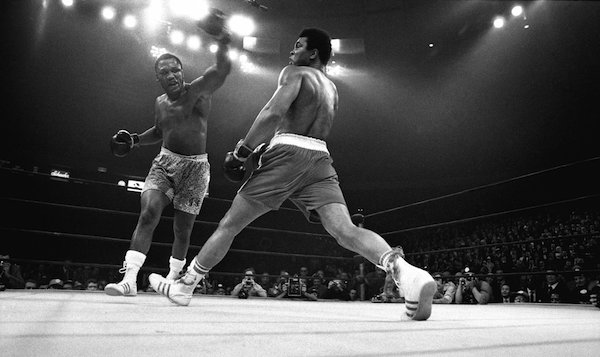
A Life Worth Fighting For
Happiness expert Paul Dolan, a professor in behavioral science at the London School of Economics, recently released a report saying, among other things, that you will be happier and healthier if you don’t have kids. Dolan points to women who are single with no kids as the happiest subgroup in modern society. While his findings are thought-provoking and possibly scientifically valid, the report feels highly misleading. Yes, having children is difficult. Yes, marriage is difficult. But what worthy pursuit is not difficult? Maybe I’m biased since I have kids and a wife, but does something being difficult make it bad? Does it make you less happy? If you wanted to be technical, you could probably conclude that difficulty makes you less happy in the moment, but I am quite certain that the avoidance of difficulty—the avoidance of challenges—would make you significantly less happy in the long term.
For instance, when I am in Barry’s Bootcamp there are moments I feel less happy. But afterward I feel incredibly energized and clear-headed for the rest of the day. When my wife and I are fighting, do I feel less happy? Of course I do. But without question my life has been and continues to be enriched by our journey together. Or when my son wakes up at 5 AM and asks me to bring him a glass of water while I am deeply sleeping, am I less happy? Damn right I am less happy at that moment. But he is my son and his mere presence in the world enriches every moment of my existence.
I would counter Professor Dolan’s findings with the statement that living a life worth fighting for requires substantial sacrifice and the acceptance of short-term difficulty and challenges. People are generally willing to deal with sacrifices and challenges when they dedicate themselves to something larger than themselves—things such as a professional or charitable pursuit, marriage, children, family, and friends. When you do this, there may be periods when you’re less happy in the short term, but you will experience sustained fulfillment and true joy in the long term. True joy—enduring fulfillment—are dimensions of our existence not adequately addressed in Dolan’s report.
In his new book The Second Mountain, David Brooks explains the distinction between happiness and joy: “What’s the difference? Happiness involves a victory for the self, an expansion of self. Happiness comes as we move toward our goals, when things go our way. You get a big promotion. You graduate from college. Your team wins the Super Bowl. You have a delicious meal. Happiness often has to do with some success, some new ability, or some heightened sensual pleasure. Joy tends to involve some transcendence of self. It’s when the skin barrier between you and some other person or entity fades away and you feel fused together. Joy is present when mother and baby are gazing adoringly into each other’s eyes, when a hiker is overwhelmed by beauty in the woods and feels at one with nature, when a gaggle of friends are dancing deliriously in unison. Joy often involves self-forgetting. Happiness is what we aim for on the first mountain. Joy is a by-product of living on the second mountain.”
As Brooks suggests, when you aim for more than short-term satisfaction in your life, you open yourself to more profound experiences—a deeper happiness, I would say. You tap into an ongoing source of joy and light.
You can be happy today. Be selfish. Take care of yourself. Go to a spa, have a nice meal, buy yourself some new clothes, go on a trip. Amp it up, get a car, a house, a boat. These are all wonderful things to do to make yourself happy today, for a moment. But these things provide only short-term satisfaction. And they have an addictive quality. If they are your main source of happiness, you soon find yourself craving bigger, better, more. The idea that a life without deep attachments and ongoing challenges would make for a happier man or woman is absurd and irresponsible to spread. The exact opposite is true. When you take on challenges today—when you decide to raise children, have a deep connection with your partner, strive to build a business or a career that positively impacts the lives of others—you will be more fulfilled and joyful for many years to come. And while difficulties encountered now may make you a little less happy in the moment, I promise you, that is a life worth fighting for.

